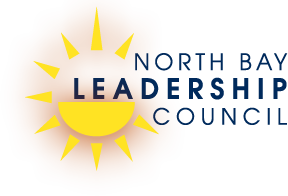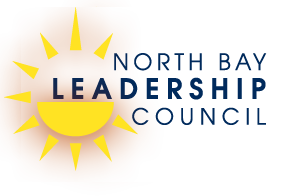Sonoma County Relief Efforts
Redwood Credit Union
The Redwood Credit Union Community Fund (RCUCF) has opened a 2020 Fire Relief Fund to assist those who lost homes due to the recent fires, and to prepare to help its communities should more fires happen this year. Donations can be made here.
In addition to the Fund, RCU is offering financial assistance and other resources to members directly impacted by the recent fires. This includes special loan programs, insurance information, details related to nonprofit services, and ways to avoid fraud and scams during this time. For additional details on these resources, visit redwoodcu.org/2020-fire-assistance.
Redwood Empire Food Bank:
Redwood Empire Food Bank is accepting money and food donations.
The food bank, which serves Northern California from Sonoma County to the Oregon border, has seen an explosion in demand since the coronavirus pandemic began in March, when distribution of emergency food boxes went from 10,000 a month to roughly 36,000 boxes a month, CEO David Goodman said in a video posted on the organization’s Facebook page.
“Next time you go to the grocery store and you’re purchasing for your family, please think about all the people who are really struggling during these times and pick up an extra bag of groceries and drop it off at the Redwood Empire Food Bank,” Goodman said.
Financial donations help cover the nonprofit’s costs such as food refrigeration and transportation.
People who want to donate, volunteer or get food assistance from the food bank can go to refb.org for more information.
UndocuFund:
UndocuFund is seeking financial assistance to help undocumented people and their families, particularly those who have lost their homes or remain evacuated during the fires, fund spokesman Omar Medina said.
The fund, created after the 2017 Tubbs fire to provide assistance to undocumented wildfire survivors, already had more than a 300-person waitlist of families seeking help due to the pandemic before the fires sparked.
Organizers have been able to provide aid to fire victims most in need in recent days through referrals from local nonprofits, Medina said.
Donations can be made at undocufund.org/donate, by mail or by texting SONOMA to 44321.
Corazón Healdsburg:
The Healdsburg-based nonprofit reopened its Unity and Community Fund last week to help families disrupted by the fires, as well as those facing financial hardships due to the pandemic, said Angie Sanchez, head of programs.
Money raised will help cover lodging costs for families who have been evacuated or permanently displaced from their homes. In addition, low-income workers who have contracted COVID-19 and need to stay home from work will be helped.
The nonprofit also has launched a disaster resilience program to educate people about emergency preparedness, financial planning and renter’s insurance.Those who complete the program, offered in Spanish and English, are eligible to have their renter’s insurance paid for an entire year by Corazón Healdsburg, Sanchez said.
People seeking assistance can call 707-395-0938. The nonprofit primarily helps residents living in northern Sonoma County from Windsor to Cloverdale.
Donations to the fund launched during the 2019 Kincade fire can be made online at the Corazón Healdsburg website or mailed to the nonprofit.
American Red Cross:
American Red Cross is accepting monetary donations for victims of the wildfires. Because of the coronavirus pandemic, the organization is asking good Samaritans to withhold dropping off food, clothing and other supplies at shelters, said Kathryn Hecht, a spokeswoman for the organization.
More than 2,500 people in Northern California received emergency housing assistance through the nonprofit since Aug. 17, Hecht said. In Sonoma County, Red Cross volunteers are helping people seeking temporary shelter.
People seeking support from the Red Cross are encouraged to go to Sonoma County Fairgrounds for an initial assessment. They also can call the organization’s hotline at 1-800-733-2767 or 1-800-RED-CROSS.
Financial donations can be made at redcross.org/donate or by mail. People wishing to route their funds directly to their area’s wildfire relief efforts can do so by selecting “Your Local Red Cross” under “I Want to Support.”
People who prefer to volunteer for the organization can apply at redcross.org/volunteer.
Sonoma County Farm Bureau:
Sonoma County Farm Bureau is raising money for farmers and ranchers whose businesses have been damaged or destroyed by the wildland blazes.
Donations can be made online at sonomafb.org/wildfire-donation or by mail.
Russian River Alliance:
Russian River Alliance is seeking monetary support for its Workforce Fund for low-wage workers living in the lower Russian River area, fund organizer Jennifer Wertz said.
Recently, the nonprofit has given $45,000 worth of grocery and restaurant gift cards to families and workers burdened during the pandemic, Wertz said. The fund also paid a group of taxi drivers to deliver groceries for three months to Russian River-area residents most vulnerable to contracting COVID-19.
The group is hoping for donations to help fire victims with basic supplies like food and gas. People can get more information at russianriveralliance.org/take-action.
River to Coast Children’s Service:
River to Coast Children’s Service is asking for monetary donations to help displaced Guerneville residents pay for essentials like meals and temporary housing, which are a growing need, said executive director Soledad Figueroa.
The nonprofit is also working with UndocuFund to help immigrant families and using grant funds to provide gift cards for anyone who needs help with food costs. River to Coast has been working with the Red Cross and county social services to help families navigate evacuations and potential losses from the fire.
Anyone interested in donating can call Figueroa directly at 707-477-7898, or get more information at rccservices.org.
Community Action Partnership Sonoma County:
Sonoma County branch of Community Action Partnership is collecting cash and gift cards to support fire victims or anyone from a mandatory evacuation zone that needs financial assistance.
The local offshoot of the national nonprofit has been working with Catholic Charities to distribute gift cards at the county fairgrounds, the temporary evacuation point for displaced area residents. Anyone who needs gift cards and isn’t at the fairgrounds can contact the CAP office or Catholic Charities.
Also, CAP is beginning to explore different options for providing resources and assisting with recovery as the amount of need becomes clearer. The organization’s local resource center, Rebuilding Our Community, has provided support for fire victims since the 2017 firestorm.
Assistant director Kathy Kane can provide information on donating. She can be reached by email at kkane@capsonoma.org, or by phone at 707-544-6911.
Fundraiser for Volunteer Fire Foundation: https://www.nytimes.com/2015/01/10/sports/kevin-jorgeson-completes-crucial-pitch-on-el-capitans-dawn-wall.html. They live in Santa Rosa. The start of the foundation was delayed by COVID-19, but the volunteer firefighters need items now. https://www.gofundme.com/f/what-firefighters-really-need-but-don039t-ask-for?pc=fb_co_campmgmtbnr_m&rcid=r01-159831529167-66fa5486348b4aea&utm_source=facebook&utm_medium=social&utm_campaign=p_lico%2Bbanner&fbclid=IwAR1h3EUhBE4-vElQ3hcD5zZRFBl01y_LUu1Wt5gpjtKs4VUZViGaEvPWdA0
Marin County Relief Efforts
American Red Cross:
Donations will go to the Red Cross’ disaster relief efforts. Visit redcross.org, call 800-RED-CROSS, or text the word REDCROSS to 90999 to make a $10 donation. The Red Cross will also be holding a disaster relief volunteer fair on Monday, Aug. 24 at 4 p.m. PT. For more information, click here.
California Fire Foundation:
This foundation provides emotional and financial assistance to families of fallen firefighters, active firefighters and the communities they protect.
CDP California Wildfires Recovery Fund:
Help the Center for Disaster Philanthropy support those affected by the wildfires.
GlobalGiving — California Wildfire:
Providing support for firefighters and supplying food, water and medicine to people in need.
GoFundMe:
Has launched a centralized hub of fundraisers that will help residents who have lost their homes and have been displaced by the fires. In addition, they have launched California Wildfire Cause General Fund to offer relief to Californians in need.
The Salvation Army:
Donations support disaster relief for the current wildfires as well as potential future disasters.
Tony LaRussa’s Animal Rescue Foundation:
ARF partners in emergency disaster relief and provides help with animals in need.
Wildfire Relief Fund:
Supporting immediate, mid- and long-term recovery efforts for major California wildfires.
World Central Kitchen:
They have already been up and running in Vacaville and will continue to help across the state.
Napa Relief Efforts
Angwin Fire:
Angwin Fire operates its station on a very small budget. Napa County provides the apparatus and turnout gear, but the building and extras belong to the community of Angwin. The annual $27,000 budget and maintenance is 100% supported by the generous donations that you give.
Napa Valley Community Foundation’s 2020 Napa County Wildfire Fund:
Providing relief and recovery services to those affected by this most recent disaster in Napa Valley.
United Way Bay Area
Serving Napa County
Center for Volunteering and Nonprofit Leadership
Serving Napa and Sonoma Counties
Wildfire Relief Funds
Direct Relief and Assistance
- The Federal Emergency Management Agency (FEMA) provides emergency medical, housing and other types of assistance for those affected by disasters.
- The Small Business Administration provides low-interest disaster loans to businesses, non-profit organizations, homeowners, and renters to repair or replace damaged or destroyed real estate, personal property, equipment and other business assets.
- The California Governor’s Office of Emergency Services connects residents with a wide range of services and programs targeted specifically at those who have been affected by wildfires.
- The State of California’s Guide to Disaster Assistance Services for Immigrant Californians provides information on health, housing, emergency supplies, employment and other services available to all Californians, regardless of their immigration status.
- The American Red Cross provides access to shelter to evacuees across California, as well as providing financial assistance to victims of disaster, evacuation updates and safety information.
- Northern California Salvation Army supports relief efforts. Funds may be used to provide food and drinks to survivors, cleaning supplies and other essential commodities, direct financial aid to those effected or to support disaster relief workers serving in the area.
- The California Association of Food Banks represents more than 40 food banks in the state that provide food to millions of residents, including victims of wildfires.
- Foodbank of Contra Costa and Solano distributes food directly to low-income people at community sites and makes food available for other nonprofit organizations serving the ill, needy and children.

